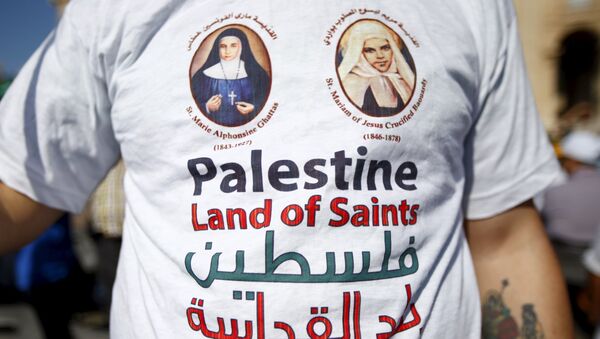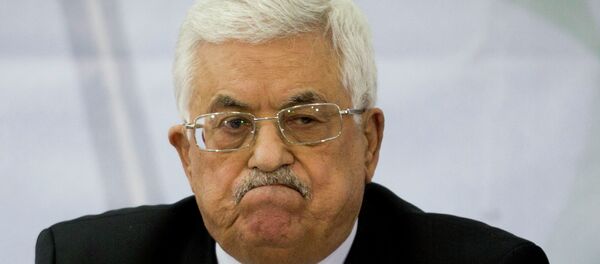Marie Alphonsine was born in 1843 to a Palestinian family in Ottoman-ruled Jerusalem and co-founded the Congregation of the Rosary Sisters, a network of convents, schools and religious centers, which exists to this day. She died in 1927 in Jerusalem, then part of British Mandate Palestine.
Mariam Baouardy was born in 1846 in the village of Ibillin, now in the northern Israel region of Galilee, to Greek Catholic parents from Syria and Lebanon. She was a mystic who is said to have experienced the stigmata – wounds on the hands representing those suffered by Jesus Christ. She died in 1878 in Bethlehem.
The women have been canonized as a result of miracles attributed to them as a result of prayers made to them after their deaths.
Sunday's mass was attended by the Palestinian Authority leader Mahmoud Abbas, who met with the Pope on Saturday prior to the canonization. In an exchange of gifts, Abbas gifted the Pope with relics of the two new saints, while Pope Francis gifted the Palestinian leader with a medallion which represented "the angel of peace destroying the bad spirit of war."
In handing over the gift to Abbas, the Pope said it was appropriate since "you are an angel of peace." In a 2014 visit to the West Bank, the Pope called both Abbas and Israeli President Shimon Peres men of peace.
Despite being the birthplace of Christianity, the number of Christians in Israel and Palestine has also fallen to less than two percent of the population, as a result of emigration and a lower birth rate than the growing Jewish and Palestinian populations.
According to census data from the Ottoman Empire, in the modern-day area of Israel and Palestine, Egypt, Jordan, Lebanon, Syria, Iraq, and Turkey Christians constituted 24 percent of the population in 1914. In British Mandate Palestine, Christians made up around 13 percent of the population, with some estimates putting the figure as high as 20 percent.
The meeting between Abbas and the Pope came after a new treaty finalized last week between the Holy See and Palestine, which officially recognized the Palestinian state.
In 2012 the Vatican praised the United Nation's recognition of Palestinian sovereignty, and has referred to the 'state of Palestine' in official documents since at least January 2013.
The treaty agreed last week sees the Holy See for the first time use the term 'state of Palestine' rather than 'Palestine Liberation Organization.' The treaty, which is yet to be signed, states that the Holy See favors a two-state solution to the conflict with Israel, and allows the Vatican to oversee aspects of Roman Catholic life in the Palestinian territories.





